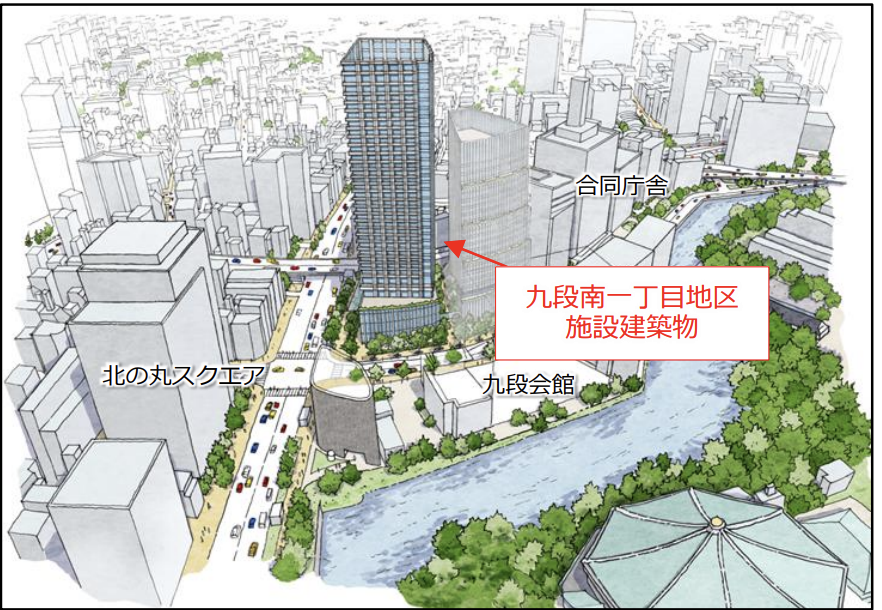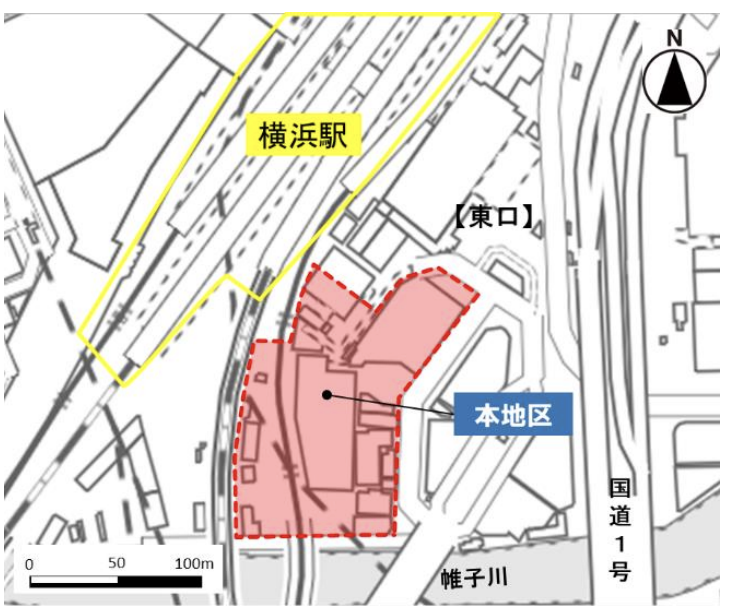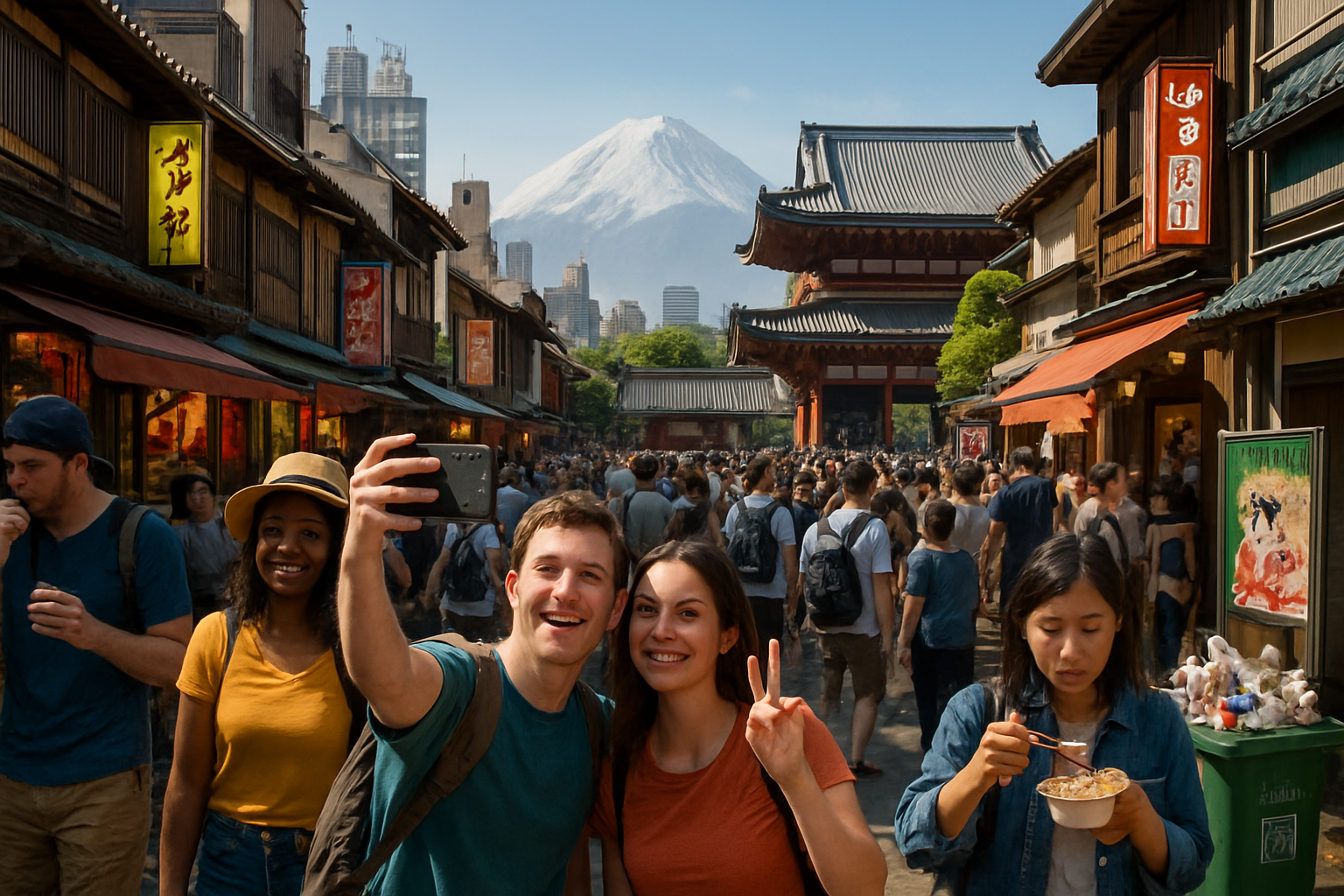Japan's luxury hotels offer more than just opulent spaces. They blend the philosophy of world-renowned brands with Japan's unique sense of beauty, elevating the stay itself into an “investment-worthy experience.” This article highlights five of Japan's top-rated five-star hotels, including The Ritz-Carlton and Four Seasons, providing an in-depth look at the background of their brand origins, their philosophy of hospitality, and the unique amenities that captivate the affluent. We hope you will find this article useful when choosing your next destination.
The Ritz-Carlton
Brand History: The name “The Ritz-Carlton” originates from César Ritz, a Swiss hotelier who was active in the late 19th century and was known as the “Hotel King.” He founded the prestigious “Hotel Ritz” in Paris and established his name as a legend through his magical hospitality that amazed royalty and the wealthy. The current The Ritz-Carlton hotel chain is one of the luxury brands under Marriott International, operating over 100 properties in 30 countries worldwide.
Hospitality and Service Features: Since its inception, The Ritz-Carlton has upheld the belief that “those who welcome gentlemen and ladies should also be gentlemen and ladies” as the cornerstone of its service philosophy. Each staff member acts as a proud professional, treating one another with respect, thereby delivering refined and elegant hospitality. As a result, guests are always treated with warmth and quality, and are provided with memorable service that makes them want to return.
Amenities and experiences for high-net-worth guests: The Ritz-Carlton offers special experiences tailored to the needs of high-net-worth guests, such as club lounges and concierge services. For example, the Club Lounge offers private check-in and gourmet cuisine throughout the day, and each hotel offers programs that incorporate local culture (such as tea ceremony experiences in Kyoto and traditional craft tours in Okinawa). In addition, each Ritz hotel is equipped with a luxury spa and Michelin-starred dining, ensuring that your stay is an extraordinary and luxurious experience.
International Recognition and Position as a Luxury Hotel: The Ritz-Carlton is one of the world's most highly regarded luxury hotel brands. The Ritz-Carlton hotels in Japan have also been awarded the highest rating of five stars by Forbes Travel Guide for their properties in Tokyo, Kyoto, and Osaka. Their hospitality is recognized internationally as a model of excellence and they are often referred to as “the ultimate in luxury hotels.” Additionally, it consistently ranks highly in customer satisfaction surveys and authoritative travel magazine rankings, solidifying its unparalleled status in the luxury industry.
Domestic Expansion and Facility Features: The first Ritz-Carlton hotel in Japan opened in Osaka (Umeda) in May 1997. Since then, it has expanded to Tokyo (Midtown, 2007), Okinawa (Nago, 2012), Kyoto (near Nijo Bridge, 2014), and Tochigi (Nikko, 2020), with a sixth property opening in Fukuoka in 2023, bringing the total to six. Each property is characterized by its design and services that incorporate the unique characteristics of its location. For example, The Ritz-Carlton Kyoto is located along the Kamogawa River, offering a serene space with traditional Japanese design elements. The Ritz-Carlton Okinawa is situated on a hill surrounded by lush nature, incorporating elements of Ryukyu culture. Additionally, Nikko offers a resort experience harmoniously integrated with the natural beauty of Lake Chuzenji. At all Ritz-Carlton properties, guests can enjoy the consistently refined “Ritz-style” hospitality.
Four Seasons Hotels and Resorts
Brand origins and history: Four Seasons was founded in 1960 by Canadian businessman Isadore Sharp and opened its first hotel in Toronto in 1961. Starting as a small motor inn, the company shifted its focus to luxury hotels in the 1970s with its entry into the London market, and has since transformed the industry with innovative and high-quality services around the world. In the 60 years since its founding, the company has grown to 133 hotels in 47 countries and is known as the “synonym for personal service.”
Hospitality and service features: Four Seasons' service philosophy is encapsulated in the “Golden Rule” established by its founder, Sharp: “Treat guests as you would like to be treated yourself.” Under this simple yet powerful philosophy, staff members provide guests with sincere personal care and exceptional professionalism. As a result, all hotels offer a distinctive blend of “warmth” and “elegance.” For example, the hotel is highly regarded for its attentive service during check-in and its ability to anticipate guests' preferences, providing hospitality that goes above and beyond expectations. The hotel is also known for its warm welcome to families, offering a wide range of amenities for children and babysitting services.
Amenities and experiences for high-net-worth guests: In addition to luxurious and comfortable guest rooms, Four Seasons offers special experience plans proposed by concierges to attract high-net-worth guests. For example, at the Four Seasons in Kyoto, guests can arrange private tours of famous temples and shrines, as well as traditional geisha entertainment experiences. In Tokyo, guests can enjoy private guided tours around the Imperial Palace and reservations at Michelin-starred sushi restaurants. The world-renowned Four Seasons bed is renowned for its exceptional comfort, with a service that allows guests to adjust the firmness of pillows and mattresses to their preference. The hotel's spa, pool, and fitness facilities are also top-notch, offering resort-like relaxation in the heart of the city.
International recognition and position as a luxury hotel: Four Seasons is highly regarded internationally as the epitome of luxury hotels and is favored by the world's wealthy and celebrities. Its service has been recognized with numerous awards and is often cited as a story of innovation and expansion in the hospitality industry. Since its founding, it has been praised for “redefining luxury for the modern traveler” and is a regular on Forbes and Travel + Leisure magazine's hotel award lists. Japanese Four Seasons hotels (such as Kyoto, Otemachi, and Marunouchi) are no exception, featuring on the “World's Top Hotels” list.
Domestic expansion and facility features: The first Four Seasons in Japan opened in 1992 as a business partnership with Tsubakiyama-so (at the time). Subsequently, under the Four Seasons brand, Four Seasons Hotel Marunouchi Tokyo (opened in 2002, a small yet secluded hotel adjacent to Tokyo Station), Four Seasons Hotel Kyoto (opened in 2016, featuring the serene beauty of the Heian-period garden “Sekisui-en”), Four Seasons Hotel Tokyo Otemachi (opened in 2020, located at the top of a skyscraper in the heart of the city, with a sky lounge and infinity pool), and Four Seasons Hotel Osaka (scheduled to open in 2024, the latest facility in Osaka's Nakanoshima district). Each property showcases distinctive design and services tailored to its location. In Kyoto, the hotel features traditional-style low-rise buildings with expansive Japanese gardens, while in Otemachi, the bar and restaurant offering panoramic views of Tokyo's skyscrapers are particularly popular. What all Four Seasons properties share is the consistent “Four Seasons-style” warm and refined hospitality.
Mandarin Oriental
Brand History: Mandarin Oriental Hotel Group is a luxury hotel brand that blends Asian tradition with Western sophistication. Its history began in 1963 with the opening of its flagship hotel, “The Mandarin,” on Hong Kong Island. At the time, this hotel was the tallest building in Hong Kong and quickly became a landmark thanks to its exceptional service. In 1974, the group partially integrated the prestigious “The Oriental Hotel” in Bangkok, Thailand, and combined the names of the two flagship hotels to create the current “Mandarin Oriental” brand. Since then, the brand has adopted the fan as its symbol and expanded from Asia to Europe and the Americas. By the early 21st century, it had opened hotels in major cities around the world, including London and New York, and now operates in over 20 countries worldwide.
Hospitality and Service Features: Mandarin Oriental prides itself on its “Asian Hospitality,” offering warm, attentive service and sophisticated facilities. Each hotel incorporates the local culture and aesthetic sensibilities, such as the Tokyo Mandarin, which features guest rooms designed around the theme of “forest and water,” blending traditional Japanese aesthetics with modern comfort. The group's commitment to spas is particularly noteworthy, with the spas at its hotels around the world receiving the highest five-star rating from Forbes, earning the reputation of “no Mandarin spa is a disappointment.” Staff are well-versed in local traditions and customs, seamlessly blending Eastern hospitality with Western functional services.
Amenities and experiences for affluent guests: Mandarin Oriental provides affluent guests with a refined lifestyle experience. A prime example is the comprehensive wellness program, which includes a state-of-the-art fitness gym and pool, as well as yoga and meditation classes and holistic therapies. The hotel also offers world-class dining, with Michelin-starred chefs at restaurants within each property. For example, Tokyo's “Signature” and “Tapas Molecular Bar” are highly regarded by gourmets. Guests are also offered experiences unique to each location. In Tokyo, these include tours of long-established shops in the Nihonbashi area and Japanese confectionery making experiences, while in Hong Kong, guests can enjoy consultations with traditional Chinese medicine practitioners and helicopter tours of the city's night views. These “luxurious experiences that can only be enjoyed in that location” are another attractive feature.
International Recognition and Positioning as a Luxury Hotel: Mandarin Oriental is recognized as one of the world's leading luxury hotels, having received numerous accolades. In particular, Mandarin Oriental Tokyo is the only hotel in Japan to have been awarded five stars in both the hotel and spa categories by the Forbes Travel Guide for six consecutive years. This is a testament to the hotel's exceptional standards in both service and facilities. The group as a whole is also a regular recipient of travel magazine awards and frequently appears on lists such as the Condé Nast Gold List and Travel + Leisure's World's Best Hotels. Its commitment to tradition while embracing innovation has earned the trust of many affluent travelers, with some even describing a stay at Mandarin Oriental as a status symbol.
Domestic expansion and facility features: Currently, the only Mandarin Oriental hotel in Japan is the Mandarin Oriental Tokyo (opened in 2005). Located in Nihonbashi, Tokyo, it is situated in an area rich in Japanese history and culture. Occupying the upper floors of a 38-story high-rise building, the hotel offers breathtaking views of Tokyo Skytree and the Imperial Palace from its guest rooms. The interior is designed around the themes of “Japanese tradition” and “nature,” with the entrance lobby featuring a beautiful space adorned with wood and water features. Additionally, all guest rooms feature windows in the bathrooms, a rare feature in Tokyo hotels, allowing guests to enjoy the night view while soaking in the bathtub. Future expansion plans include new openings in Kyoto and the Seto Inland Sea area, further solidifying the Mandarin Oriental brand's presence in Japan.
The Peninsula Hotels
Brand History: The Peninsula Hotels is often referred to as Asia's oldest hotel company, with a history dating back to 1866 in Hong Kong. Its parent company, Hong Kong and Shanghai Hotels (HSH), began hotel operations in Hong Kong in the 19th century and opened its flagship property, “The Peninsula Hong Kong,” in 1928. This hotel was built with the aim of being “the finest hotel east of the Suez Canal” and gained a reputation for welcoming VIPs from around the world from the moment it opened. HSH continued to expand slowly into Asia and Europe, and now operates Peninsula Hotels in 10 cities around the world. Although the number of hotels is small due to its family-run management and commitment to preserving tradition, its brand power and prestige have been cultivated over more than 150 years.
Hospitality and Service Features: The Peninsula's hospitality is characterized by the fusion of tradition and innovation. While maintaining the dignity and pride of its founding, the hotel actively introduces state-of-the-art facilities and services. This is exemplified by the technology in the guest rooms, which are equipped with advanced lighting and air conditioning controls, as well as entertainment systems (the Peninsula in Tokyo, for example, has had Skype-enabled phones and nail dryers in all rooms since its opening). On the other hand, the hospitality of the staff is deeply rooted in tradition, offering the meticulous attention to detail and warmth characteristic of a long-established hotel. For example, at the Peninsula Hong Kong, “page boys” in uniform greet guests at the entrance, showcasing the hotel's consistent, elegant service style across all Peninsula properties worldwide. The Peninsula's legendary “Peninsula-style hospitality,” cultivated over decades, provides a comfortable and reassuring environment for everyone, from VIPs to general guests.
Amenities and experiences for the affluent: The Peninsula Hotels are famous for their Rolls-Royce transportation service. Each hotel owns its own fleet of Rolls-Royce cars, which are available for airport transfers and city tours. For example, in Hong Kong, 14 Rolls-Royces painted in Peninsula Green are available, while in Tokyo, two custom-made Rolls-Royces in the same color are provided for guests. Additionally, some hotels (Tokyo, Hong Kong, Shanghai, and Paris) own vintage Rolls-Royce Phantom IIs from the 1930s, which are used for special events. Such transportation and driving experiences are a unique luxury service offered by the Peninsula. Furthermore, each Peninsula hotel offers a guest experience program called the “Peninsula Academy,” providing special activities that allow guests to deeply experience local culture (e.g., traditional dance performances, cooking classes, and historical tours). The hotel's spa, pool, and dining facilities are also top-notch, offering a quiet and elegant atmosphere in the heart of the city.
International recognition and position as a luxury hotel: Peninsula Hotels are highly regarded in the hotel industry. The Peninsula Hong Kong is a symbol of this, loved by celebrities and the wealthy around the world and known as the “Lady of Hong Kong.” The Peninsula Tokyo has also won numerous awards since its opening. For example, it was ranked second in the world in the U.S. magazine “Travel + Leisure” list of “The World's 500 Best Hotels,” and it has also received the highest rating of 5 Pavilions (equivalent to 5 stars) in the “Michelin Guide Tokyo” (at the time when the hotel category was included). It has also been awarded 5 stars by Forbes Travel Guide, and its service quality is unparalleled. “The Peninsula never disappoints” is a common refrain, and it has established an unshakable international reputation as a unique destination available only in select cities.
Domestic Expansion and Facility Features: In Japan, there is currently one Peninsula hotel, The Peninsula Tokyo (opened in 2007), located in Yurakucho, Tokyo. This 24-story independent hotel faces the Hibiya intersection and was designed with Japanese lanterns as a motif, which are beautifully illuminated at night. Located in a prime location overlooking the Imperial Palace Outer Gardens and Hibiya Park, the 314 guest rooms are spacious with an average size of 54 square meters and feature modern design with Japanese accents throughout. On the top floor, guests can relax in the sky spa and heated pool while enjoying views of the greenery and cityscape below. The hotel's restaurants, “Heifun Terrace” (Cantonese cuisine) and “Peter” (grill), are highly regarded locally, and the lobby, where guests can enjoy afternoon tea, is bustling with visitors every day. Operated with the philosophy of “a hotel rooted in the local community,” it is beloved as an open and welcoming presence in the heart of Tokyo.
Aman (Aman Resorts)
Brand History: Aman is an ultra-luxury resort brand founded in 1988 by Indonesian businessman Adrian Zecha. The first property, “Amanpuri” (meaning “peaceful place”), opened in Phuket, Thailand, in 1988, and its unparalleled sense of privacy and healing ambiance quickly captivated celebrities worldwide. Zecha developed resorts with the mindset of creating his ideal vacation home, prioritizing the pursuit of non-daily relaxation over convenience, and subsequently launched a series of small-scale villa-style hideaway resorts. Since then, Aman has continued to expand into natural, culturally rich locations away from urban hustle and bustle, now operating approximately 35 resorts across 20 countries worldwide. The brand name “Aman” means “peace” in Sanskrit, and the company is committed to providing stays that live up to this name.
Hospitality and Service Features: Aman's philosophy is to “provide an exceptional experience for a select few.” Each Aman property has only 30 to 50 rooms, allowing staff to provide attentive service to each guest. The natural and personalized service, including check-in procedures that are so seamless you hardly notice them, and customized services tailored to guests' preferences, are said to give guests the feeling of returning to their own private villa. While Aman resorts generally do not display signage or engage in extensive marketing, they are renowned for their exceptionally high rate of repeat guests. This phenomenon is often referred to as the “Aman Magic,” with guests often booking their next stay before they even check out. Staff members provide discreet yet comprehensive service, seamlessly blending “ultimate privacy” with “warm hospitality.”
Amenities and experiences for the affluent: Aman pursues not luxury but the “ultimate in comfort.” The guest rooms are minimalist and spacious, with a unified design that incorporates high-quality materials and traditional architectural styles. For example, the guest rooms at Aman Tokyo feature Japanese paper sliding doors and deep bathtubs, creating a space that modernizes elements of traditional Japanese houses. At Aman's resort properties, guests can enjoy ultimate privacy with private pool villas and exclusive beaches. In terms of activities, each location offers unique experiences that can only be enjoyed there. At Aman in the Maldives, guests can enjoy a private picnic on a deserted island; at Aman in Cambodia, they can watch the sunrise over ancient ruins; and at Aman in Japan, they can explore hidden gems with a dedicated cultural guide. These experiences create “one-of-a-kind memories.” The cuisine is also highly regarded, offering healthy and sophisticated dishes made with local ingredients, as well as the flexibility to prepare special menus according to guests' requests.
International recognition and positioning as a luxury hotel: Aman stands out from other chains as the ultimate boutique hotel, receiving enthusiastic support from affluent travelers around the world. It is said that once you stay at Aman, you will never be satisfied with anything else, and its loyal repeat customers even refer to themselves as “Aman junkies.” While Aman does not actively seek official rankings such as Forbes, it has received the highest rating in the Michelin Guide for Aman Tokyo and consistently ranks among the top in travel magazines and review sites worldwide. What sets Aman apart is its customer loyalty, with many of the world's most prominent VIPs and celebrities choosing it as their “favorite hideaway.” Despite its lack of large-scale advertising, Aman exudes a unique presence in the luxury industry and its every move is closely watched.
Domestic Expansion and Facility Features: Aman currently operates the following properties in Japan.
- Aman Tokyo (Otemachi, Tokyo): Opened in 2014 as Aman's first urban hotel. Located at the top of the Otemachi Tower, the lobby features a 30-meter-high atrium with a design reminiscent of traditional Japanese paper lanterns. All 84 guest rooms boast the largest space in Tokyo, offering a sophisticated blend of traditional Japanese and modern design with breathtaking views of the city. It is a “sky-high hideaway” where guests can experience tranquility and relaxation amidst the bustling city.
- Aman Kyoto (Kyoto City, Takagamine): Opened in 2019. Nestled in a forest north of the city, the property features just 26 suites and villas, evoking the tranquility of a secluded tea house. Guests can enjoy moss-covered gardens and the changing beauty of nature throughout the seasons, immersing themselves in Kyoto's rich cultural heritage.
- Amanemu (Amanemu) [Official name: Amanemu] (Mie Prefecture, Ise-Shima): Opened in 2016. This villa-style resort features 24 villas spread across a hill overlooking Ago Bay, each with its own private hot spring bath. Designed to harmonize with the rich natural surroundings of Ise-Shima National Park, it offers a luxurious Japanese-style resort experience embraced by the sea, sky, and forest.
Additionally, plans are underway for the opening of an ultra-luxury resort, Aman Niseko (tentative name), in Niseko, Hokkaido, further expanding Aman's presence in Japan. What all these facilities have in common is the fusion of Japanese traditional beauty and Aman's minimalist luxury, offering a serene escape from the hustle and bustle.
Park Hyatt (Park Hyatt Hotels)
Park Hyatt Tokyo (located in the upper floors of the Shinjuku Park Tower) exterior. Designed by Kenzo Tange, this high-rise building houses a “small luxury hotel” with 177 rooms, which opened in 1994.
Brand History: Park Hyatt is the luxury hotel brand of Hyatt Hotels Corporation. It was established in the 1980s, with the first property opening in Chicago in 1984. Since then, it has expanded to major cities worldwide, with the 1994 opening of Park Hyatt Tokyo significantly boosting the brand's recognition in Asia. The hotel occupies floors 39 to 52 of the Shinjuku Park Tower in the heart of Shinjuku, and at the time of its opening, it garnered attention as a groundbreaking high-rise luxury hotel. From its inception, it has been favored by prominent figures from various fields and is also known for being the setting of the 2003 Hollywood film “Lost in Translation.” Since then, Park Hyatt has expanded globally as a luxury hotel with a “urban hideaway” concept, with over 20 properties now operating in cities such as New York, Paris, and Sydney.
Hospitality and Service Features: Park Hyatt emphasizes “quietness” and “refined elegance,” offering services that prioritize privacy. With approximately 200 rooms, it is smaller than other hotels of its class, allowing staff to provide more personalized service. Employees are discreet and professional, offering subtle support when needed, a hallmark of the “subtractive service” philosophy. The hotel also pays meticulous attention to creating an inviting atmosphere, with high-quality furnishings and art pieces in the lobby and corridors, as well as a focus on soundproofing and lighting design. Park Hyatt Tokyo has made efforts to maintain a quiet environment by eliminating loud announcements, and is often described as a place where guests can forget the hustle and bustle of the city as soon as they step inside. In terms of services, the hotel offers basic amenities such as 24-hour room service and a concierge desk, while also providing a balanced hospitality that is neither overly formal nor overly casual, but rather warm and personal.
Amenities and experiences for affluent guests: Park Hyatt hotels are often located in high-rise buildings in urban areas, with their views being a major attraction. In Tokyo, guests can enjoy the night view from the 52nd-floor New York Bar & Grill, while in Shanghai, they can take in the Bund from the bar. Each hotel also offers unique experiences tailored to affluent guests, such as private dining in a suite, a dinner menu created in consultation with the executive chef, and after-hours museum tours (Park Hyatt Shanghai). The hotel's fitness and spa facilities are also well-equipped, with a pool and jacuzzi overlooking an aerial garden on the 45th floor in Tokyo, and a large bathhouse with an open-air bath overlooking a traditional garden in Kyoto, offering luxurious relaxation spaces unlike any other. Additionally, each guest room is equipped with high-quality amenities such as Egyptian cotton linens, thick towels, and the latest AV equipment, ensuring a comfortable stay even for long-term guests.
International recognition and position as a luxury hotel: Park Hyatt is known for its stylish brand image and is often regarded as a designer hotel. In fact, Park Hyatt hotels around the world have been designed by famous architects and designers, such as Kenzo Tange (building) and John Maudhood (interior) in Tokyo, and Ed Zau (interior) in Paris, attracting attention from the architecture and design world. As a result, it is often featured in guidebooks as a hotel where guests can enjoy architecture and art. In terms of service evaluations, it maintains high ratings from Forbes and Michelin, with Park Hyatt Tokyo and Park Hyatt Kyoto both awarded “Four Forbes Stars.” Tokyo, in particular, has gained high recognition among international travelers due to the aforementioned film effect and is a regular on the “Tokyo's Best Hotels” list. Overall, Park Hyatt is internationally recognized as a leading modern luxury hotel and is highly regarded by both guests and experts.
Domestic Expansion and Facility Features: Currently, the following Park Hyatt hotels are located in Japan (as of 2024, including facilities temporarily closed for renovation).
- Park Hyatt Tokyo (Shinjuku Ward, Tokyo) – Opened in 1994. Located in the upper floors of the Shinjuku Park Tower, it features 177 rooms. Designed to maintain a quiet atmosphere despite its proximity to the Tokyo Metropolitan Government Building, it has been a leading presence in Tokyo's luxury hotel scene. The “New York Grill & Bar” on the 52nd floor is famous as a movie location and offers some of the best views of Tokyo.
- Park Hyatt Kyoto (Kyoto City, Higashiyama Ward) – Opened in 2019. This low-rise luxury ryokan-style hotel is nestled in the charming streets of Higashiyama, near Kodaiji Temple. Its interior design incorporates traditional Japanese aesthetics and craftsmanship, and guests can enjoy views of Kyoto's cityscape and Kiyomizu-dera Temple from the grounds. With a limited number of rooms, it offers a secluded and intimate stay.
- Park Hyatt Niseko HANAZONO (Kutchan Town, Hokkaido) – Opened in 2020. This mountain resort hotel is located in the Hanazono district of the world-renowned Niseko ski resort area. Guests can enjoy the finest powder snow in winter and trekking and golf in summer. With hot spring facilities, it is a luxury resort that can be enjoyed throughout the year.
All Park Hyatt hotels in Japan incorporate the unique charm of their locations while maintaining the refined elegance common to all Park Hyatt properties, earning them high praise from affluent guests both domestically and internationally.
Hotel Okura (The Okura Tokyo)
Brand History: Hotel Okura is a pioneer in Japan's luxury hotel industry. Founded in 1958 by the Okawa Zaibatsu-affiliated Taisei Kanko Co., Ltd., it opened its first hotel, “Hotel Okura Tokyo,” in Tokyo's Toranomon district in 1962. From its inception, the hotel was born out of a strong desire to create a Japanese-style hotel that would rival the world's finest hotels in terms of elegance and comfort. The main lobby, which seamlessly blends traditional Japanese beauty with Western hotel functionality, was hailed as a masterpiece of Japanese modernist architecture. Since then, the hotel has welcomed state guests and VIPs from around the world, establishing itself as one of Japan's premier luxury hotels. In the 1970s, the hotel expanded overseas, including the opening of the Okura Amsterdam (1971) and the incorporation of JAL Hotels (Hotel Nikko) into its operations, advancing its global expansion. In 2019, after renovating the main building, the Okura Tokyo reopened as “The Okura Tokyo (Okura Heritage Wing & Prestige Tower),” reborn with modern facilities while preserving its traditions.
Hospitality and service features: Hotel Okura embodies the spirit of Japanese hospitality. Since its founding, the hotel has made it its mission to introduce foreign guests to the beauty of Japan, and its staff has strived to provide service that emphasizes formality and dignity. This is symbolized by the beauty of the bow and movements known as “Okura Heritage,” as well as the staff's thoughtful and attentive service. Additionally, the hotel offers services that evoke Japanese sentiment, such as hospitality inspired by the spirit of tea ceremony and flower arrangement, and seasonal floral arrangements in guest rooms and lobbies. At the same time, restaurant services and front desk operations incorporate Western-style efficiency, providing international standards of comfort. “The harmony of Japanese and Western elements” is the service philosophy of Hotel Okura, and it has been praised by foreign dignitaries as “the most comfortable hotel in Tokyo.”
Amenities and experiences for high-end guests: Okura Tokyo has a long-standing tradition of offering traditional flavors and spaces that appeal to high-end guests. For example, the French restaurant “La Belle Epoque” and the Japanese restaurant “Yamazato” are renowned establishments that have been frequented by former heads of state and members of the imperial family, offering exquisite cuisine and stunning views. At the newly renovated Okura, the design of the original main lobby has been recreated in the Heritage Wing, with features such as lattice ceilings and Ryukyu glass chandeliers bringing back the charm of the past. Guests can enjoy a sense of exclusivity by checking in at the elegant lobby lounge, which is a legendary space. Additionally, Okura has extensive experience hosting dignitaries from around the world, ensuring top-notch security and privacy measures. The Imperial Suite, with its private entrance and butler service, is equipped with facilities and services that ensure a comfortable stay for affluent guests. In addition, the hotel offers tea ceremony experiences in a tea room, kimono rental services, and a gallery showcasing Japanese culture, providing particularly appealing experiences for affluent guests from overseas.
International recognition and position as a luxury hotel: Hotel Okura Tokyo has been highly regarded both in Japan and abroad for many years. In 1964, the year after its opening, it served as a major hotel for hosting VIPs from around the world during the Tokyo Olympics. Since the 1960s, it has also served as a substitute state guesthouse for many international conferences and banquets. Prior to its renovation in 2020, the main building was closed, and its cultural value was widely recognized, with architects and designers from around the world expressing regret over its closure. The newly reborn Okura Tokyo has also been awarded five stars by the Forbes Travel Guide 2023, establishing its world-class standards in both service and facilities. Combining the tradition of being one of the “Big Three” hotels in Japan alongside the Imperial Hotel and New Otani with modern luxury, it will continue to reign as one of the top hotels in the country.
Domestic Expansion and Facility Features: The Okura Hotel Group operates properties under the “Okura” brand across Japan, with its flagship property being The Okura Tokyo in Tokyo. While there are other Okura properties in Kyoto, such as the Kyoto Hotel Okura (formerly Kyoto Hotel), the Okura Tokyo stands out as the only pure five-star property in the city. The Okura Tokyo consists of two buildings: the Heritage Wing (17 stories, emphasizing tradition and privacy) and the Prestige Tower (41 stories, featuring modern luxury amenities). The Heritage Wing offers all rooms of 50 square meters or larger with a high-quality Japanese-style space, while the Tower Wing features spacious rooms with panoramic views of Tokyo and the latest facilities. Although each has its own unique charm, both offer the quiet and elegant hospitality characteristic of the Okura brand. Looking ahead to the 2020s, new openings are planned in Osaka and Niseko, among other locations, making the Okura brand a key player to watch as a Japanese-born luxury hotel brand.
While each hotel brand has its own history and service philosophy, what they all share is a passion for providing guests with a unique and valuable experience. For affluent customers in Japan, understanding the stories and charm of each hotel will make choosing their next luxurious destination even more enjoyable.

Daisuke Inazawa
Representative Director of INA&Associates Inc. Based in Osaka, Tokyo, and Kanagawa, he is engaged in real estate sales, leasing, and management. He provides services based on his extensive experience in the real estate industry. Based on the philosophy that “human resources are a company's most important asset,” he places great importance on human resource development. He continues to take on the challenge of creating sustainable corporate value.

.png)













